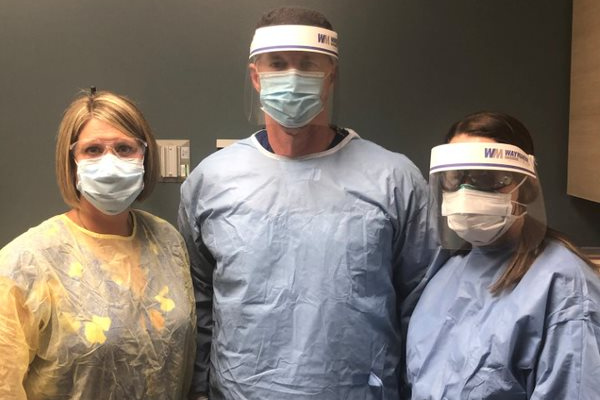
As the COVID-19 pandemic languishes into its third year, physicians continue to bear the brunt of its impact, from unpredictable surges to worsening burnout. Craig Meek, MD, an emergency medicine physician in East Texas and president of the Texas College of Emergency Physicians, has observed another more profound effect, which he suspects is changing the profession in irrevocable ways.
“There was always a certain degree of trust in physicians and nurses and hospitals. They were always isolated from societal aggressions and pressures and debates,” he said. “This is the first time I’ve seen it where we’re not isolated, and quite frankly, as physicians, we need to function better in this environment.”
Still, Dr. Meek is optimistic that he and his colleagues will be able to reverse course. “It’s a challenge that I know my colleagues will step up to,” he said.
Pre-pandemic, Dr. Meek felt most patients trusted their physicians most of the time – and for good reason. “From the moment we step into a patient-physician relationship, our goal is to provide the best and most thought-out intervention to help them.”
He relishes this part of the job. “In emergency medicine, one of the difficulties is, we have people who come in very ill ... and we don’t have the established relationship that other doctors have, so we have to gain trust in a few minutes,” he said. “It’s a little bit of an art form.”
Over the course of the pandemic, however, this trust-building work has become more difficult, as some patients reject medical expertise and embrace widespread misinformation. “There’s always been patients who have not trusted modern health care,” he said. “But to have such a massive volume of patients not trust what we’re trying to do is difficult.”
Dr. Meek says some of his patients think he’s lying to them or don’t believe that COVID-19 is a real disease. Others ask for treatments that are unproven to be effective against COVID-19 and get angry at him for not administering them.
He believes this burgeoning mistrust is the result of multiple factors, including political polarization; the ubiquity of falsehoods on social media; and evolving public health guidelines issued by local, state, and federal government agencies. “It’s a lot bigger than just one thing,” he said.
This has left Dr. Meek feeling frustrated and demoralized at times. “When you’re in the middle of a struggle, you don’t realize that you’re growing, evolving, and becoming better because of that struggle,” he said. “All you realize is, ‘Oh, this is a struggle. This hurts.’”
Although a panacea seems elusive, he is certain medicine will discover new ways to rebuild patient trust. “Those of us who can maintain perspective of how talented, amazing, smart, and flexible our health care [professionals] are, it makes me feel like … we’re going to grow through this,” he said.
Emma Freer
Associate Editor
(512) 370-1383